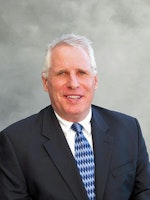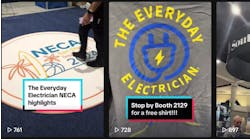Smart Cities: An Emerging Business Opportunity for Electrical Contractors
Electrical contractors may be in better position than they realize to develop a profitable presence in the emerging Smart City market. Panelists at the NECA Show session, “What is a Smart City and Why Should You Care?” agreed many electrical contractors already do 80% of the electrical and VDV work necessary for most Smart City applications. The other 20% is expected to be in the installation and commissioning of various control systems, work that for the most part is in their grasp with the proper training, said Terry Coleman, who helps coordinate training for NECA’s electrical training ALLIANCE. “It is work we know how to do,” he said.
The Smart City concept includes streetlighting, electric vehicle charging stations, traffic management systems, various municipal services (including water, safety, cyber security and mass transit), new 5G control systems, inter building electrical control systems ,and other applications that require the installation of various sensors to send data to cloud-based data management systems that city, facility, and building managers are developing to manage municipal operations.
Electrical contractors who are installing connected streetlights, electric vehicle charging stations, photovoltaic systems, energy storage systems, and 5G networks are already working on integral parts of the Smart City infrastructure, said Kelly Waters, director of Power Connect, Columbus, Ohio, a consortium of about 50 Ohio electrical contracting firms that focus on infrastructure improvements and electrical technology developments in that region.
She said electrical contractors who want to focus on Smart City work should start establishing contacts within local municipal, county, and state governments, as well as economic development organizations, commercial developers, hospitals, schools and universities, and other public and private entities that may utilize smart city technology. Along with elected officials in these areas and executives who make decisions on infrastructure investments, Waters said contractors should search for contacts who have an interest in sustainability, net zero building, and the electrical grid, and try to get a seat at the table of committees and other civic or private planning groups that support the Smart City Concept.
Waters and Coleman agreed that the Smart City is a legitimate business opportunity for electrical contractors, it’s important that they are proactive and get involved with projects early, and not leave the market open to other specialty contractors or other entities from outside the electrical construction industry.




